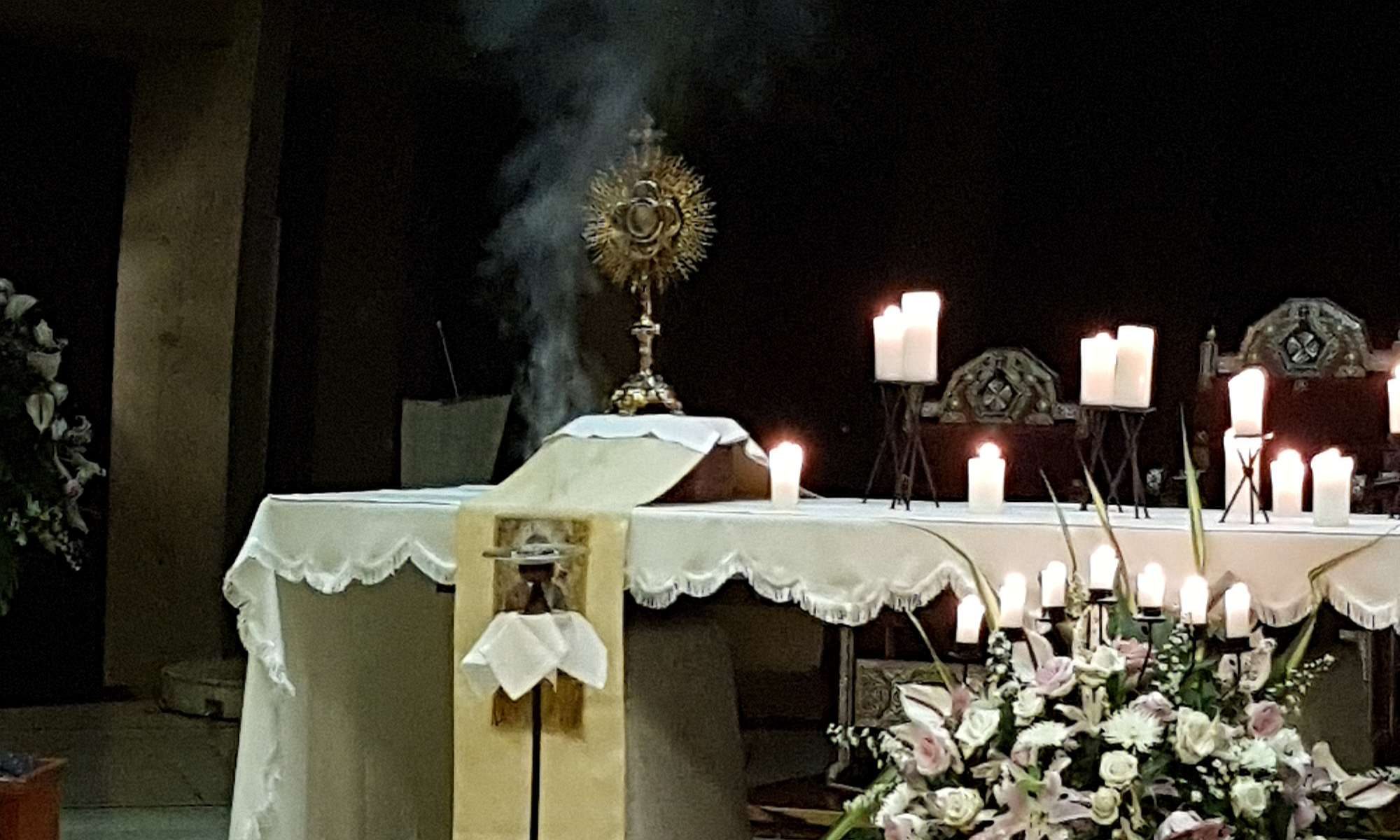I am often amazed at the richness of the Hail Mary. In spite of its brevity, it is nothing less than a concise treatise of theology, a beautiful liturgical prayer, a great source of personal meditation, a manual for nourishing preaching, a reliable picture of the Blessed Virgin’s true greatness, a model for genuine Christian life, and a sort of hub that leads to some of the finest works in art, poetry, painting and music.
It is also a place for different kinds of spiritual exercise. In the Hail Mary we are encouraged to praise, to thank, to ask for, to trust even more. Faith, Hope and Love fit well in the inner harmony of Heaven and Earth that is so characteristic of this beloved prayer. Heaven makes heard its voice through the Archangel; the Earth replies through the voices of the believers, using a humbler tone to ask for intercession and help.
Today I would like to highlight this aspect of humbleness that is not so apparent when we address the Virgin Mary.
Please do notice that the one expression we repeat in this prayer’s first half is “blessed.” We call Her blessed, and it is right to do so, for that title of heavenly nobility comes straight from the Sacred Scripture, on the lips of Elizabeth (Luke 1,42), who thus saluted Mary, while embracing with the same term the unborn Son of God. The bond of a blessing holds together Mother and Child and that is what we recall in reciting the Hail Mary.
Even so, how do we name ourselves? In the second half of this prayer we introduce ourselves with the humblest thinkable title: sinners. “Pray for us, sinners,” we cry out–so admitting how urgent is our need. The contrast could not be greater. On the one hand, we acknowledge her blessing; on the other, we are fully aware of our destitution.
Sin is the worst and in some way the only misery. In calling ourselves sinners we are truly exposing that acute neediness. It is not an act of self-punishment. It is not an act of despair or depression. It is simply sincerity. It is about being honest to God and to each other. Some people find that expression too gloomy: How is it that we name ourselves by the most unpleasant aspect of our lives? My answer to this is simple: go to the Gospel. Read thoroughly page after page of the Gospel and you will realise that every one who wanted a particular favour from God did what we do in the Hail Mary. It is not concealing but exposing our wounds that they come to be healed. Certainly it is not enjoyable to recognise that we have sinned, but the pain of admitting what we are is the tiny fare we pay in order to be pulled away from that condition. Well understood, repentance is nothing less than a dutiful act of true love towards oneself.
The Hail Mary contains even another act of humbleness. We ask Mary to pray for us “now, and at the hour of our death.” In saying this we are also confessing that we are but mortal men and women. And believe me, how healthy is that modest thought, the humble remembrance that we shall die.
For all our pretensions, death is knocking the door and repeating its simple yet powerful message. For all our illusions, death is reminding us how different God’s standards are, as compared to human flattery. Death is so mighty when it comes to stop day-dreaming and when we have to be called to our senses! I am not exaggerating if I a affirm that death is life-changing.
As we remember that our lives will come to an end on this earth, we are gently proclaiming that our true destination is far beyond all that can be grabbed with these hands. The ultimate message of the Hail Mary is neither that we have been sinners nor that we shall die, but that we are called, and led and strengthened to reach our goal: repentance leads to trust in God, and trust leads to victory in His name.
